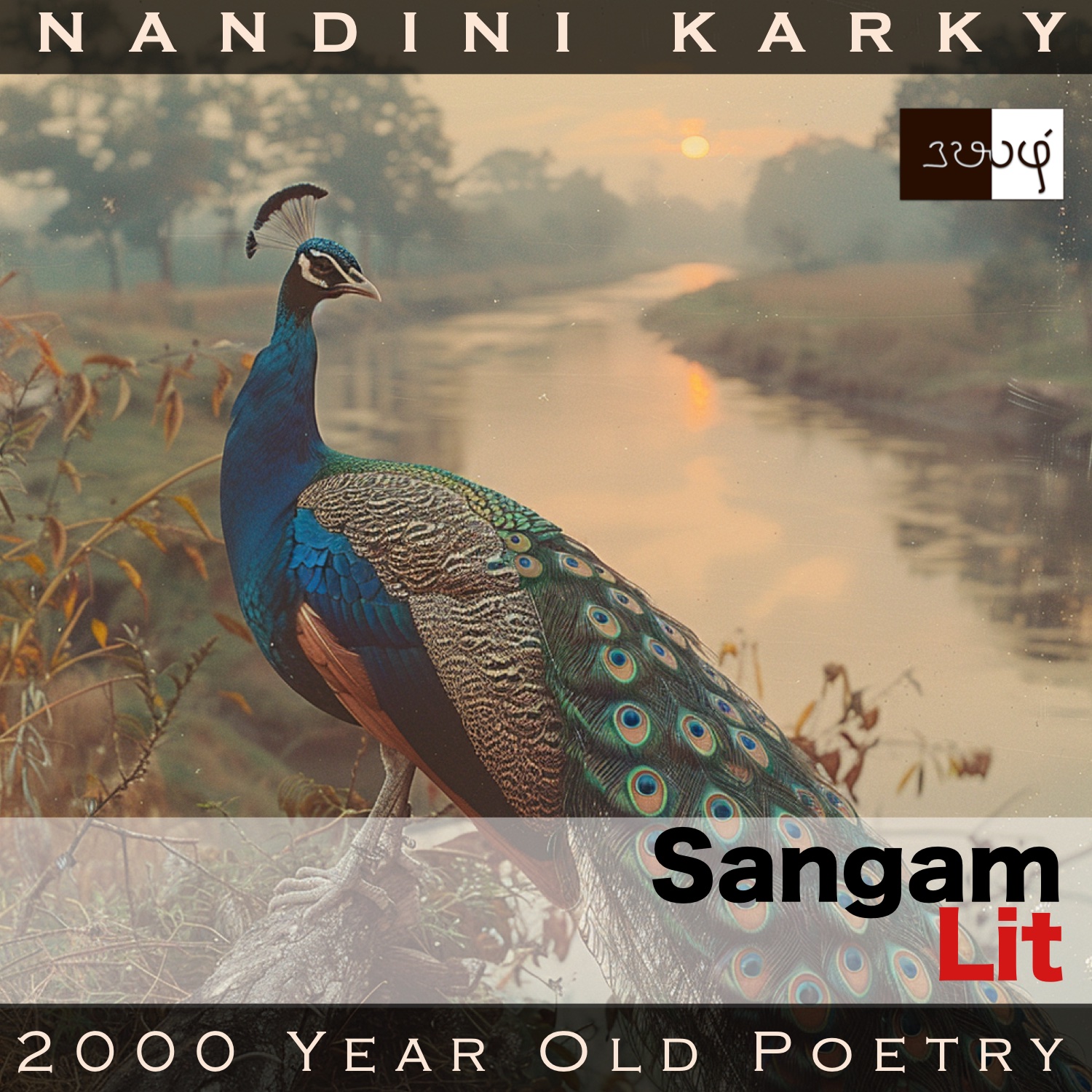Podcast: Play in new window | Download
Subscribe: Apple Podcasts | Spotify | Amazon Music | Android | iHeartRadio | TuneIn | RSS | More
In this episode, we listen to two possible consequences, as depicted in Sangam Literary work, Puranaanooru 344, penned by the poet Andar Nadum Kallinaar. The verse is situated in the category of ‘Kaanji Thinai’ or ‘Defence’ and talks about a situation involving a maiden of marriageable age.

செந்நெல் உண்ட பைந் தோட்டு மஞ்ஞை,
செறி வளை மகளிர் ஓப்பலின், பறந்து எழுந்து,
துறை நணி மருதத்து இறுக்கும் ஊரொடு,
நிறைசால் விழுப் பொருள் தருதல் ஒன்றோ
புகை படு கூர் எரி பரப்பிப் பகை செய்து,
பண்பு இல் ஆண்மை தருதல் ஒன்றோ
இரண்டினுள் ஒன்று ஆகாமையோ அரிதே,
காஞ்சிப் பனிமுறி ஆரங் கண்ணி………………
கணி மேவந்தவள் அல்குல் அவ் வரியே.
A verse with a few missing lines in the end but with detailed descriptions in the rest. The poet’s words can be translated as follows:
“The green-feathered peacock eats red paddy and as bangle-clad maiden chase it away, rises up, flies and rests on a ‘marutham’ tree growing on the shore. Either the offering of towns with such scenes along with copious amounts of wealth will happen or signs of smoke rising owing to setting fire and spreading it with an enmity, arising out of a culture-less manliness, will happen. It’s rare that one of the two will not happen… Such are the ‘kanji’ leaves clad, ‘aaram’ flowers decked, pollen-coated exquisite lines of her waist!”
Let’s explore the details herein. The poet points to a peacock with exquisite green feathers and says this bird was happily munching on the red paddy in the fields until it was chased away by maiden clad with stacks of bangles. Then, it flies, climbs and stays on a ‘Marutham tree’ or ‘Arjuna tree’ that grows on the shores of a river, he adds. This scene is depicted to highlight the fertility of the town as reflected in the lush paddy crop flourishing there, the rich bangles of those maiden, who chase away birds from their father’s fields, and also, the tree that grows on the banks of a river, pointing to plentiful water resources. The poet connects by saying that one of two things will surely happen, and that is, such rich towns will be given as ‘bride price’ along with abundant wealth or the father’s town will be set to fire with such enmity that arises out of a misplaced notion of manliness. Continuing, the poet concludes with the remark that one of these two events is sure to transpire because such is the beauty of a maiden, who wears ‘Portia tree’ leaves, ‘Bahunia tree’ flowers and loves to coat herself with the pollen of ‘Kino trees’.
Another verse which talks about a situation of defence involving a beautiful maiden. Through this verse, we understand that either suitors will offer towns entire with cartloads of wealth for claiming the girl or when refused, they will set the town on fire because they perceive that their honour has been tarnished by the refusal of the girl’s father. When we reflect on the contemporary practice of dowry, wherein the girl’s family have to give huge amounts of wealth and offerings to the groom, does this reverse case from the past of offering all this wealth to marry a girl imply that the woman were given so much importance and that this is the best way forward? Hope young people and their families realise that either of these scenarios are not the solution and the best unions are the simple coming together of hearts, where money doesn’t have a say!




Share your thoughts...